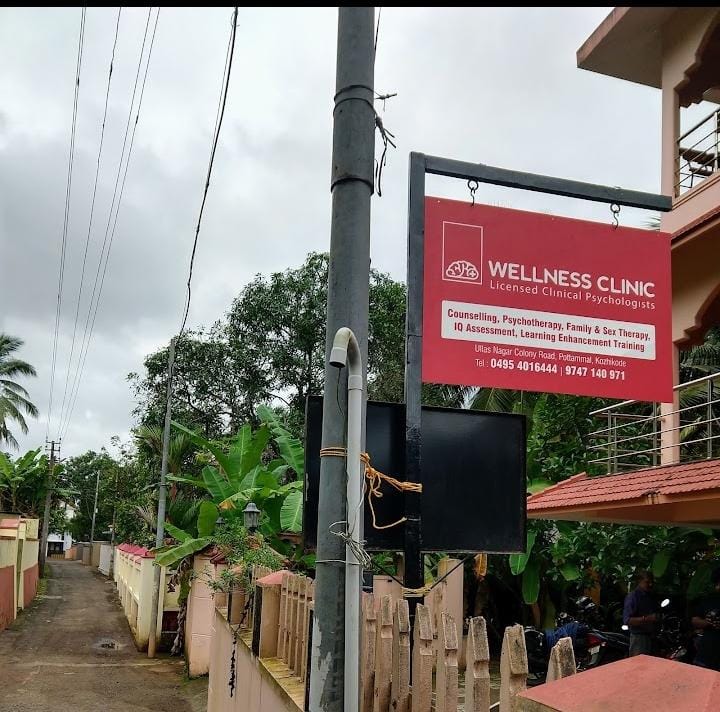Wellness Clinic
Pottammal - Kozhikode
Products & Services:
Wellness Clinic, Pottammal, Kozhikode, Reviews, Contact number, Phone number, Address, Map, Counseli More..
Since : 2015
Pottammal - Kozhikode
Products & Services:
Wellness Clinic, Pottammal, Kozhikode, Reviews, Contact number, Phone number, Address, Map, Counseli More..
Since : 2015
Special education centers are specialized institutions designed to cater to the educational needs of children with learning disabilities, developmental delays, and other special needs. These centers employ trained professionals and utilize specific teaching methods to ensure that every child receives an education tailored to their unique requirements.
Snehanidhi Special School
Adarsh Special School
Asha Kiran Special Needs School
IMHANS Child Development Centre
Nirmala Sadan Special School
Pratheeksha Learning Center
Iris Learning Centre
Samastha Special School
Don Bosco Special School
Special School for Mentally Challenged, St. Agnes
Special education centers are educational institutions dedicated to teaching and supporting students with special needs. These needs can include a range of disabilities such as learning disabilities, intellectual disabilities, emotional and behavioral disorders, physical disabilities, and developmental disorders like autism spectrum disorders (ASD). The primary goal of these centers is to provide individualized education programs (IEPs) that cater to the specific needs of each student, ensuring they receive the appropriate support to thrive academically, socially, and emotionally.
These centers employ specialized educators and therapists who are trained to work with children with various disabilities. The curriculum is often adapted to meet the needs of individual students, incorporating specialized teaching strategies, assistive technologies, and therapeutic interventions. By providing a supportive and nurturing environment, special education centers aim to enhance the learning and development of children with special needs.
One of the primary features of special education centers is the development and implementation of Individualized Education Programs (IEPs). These programs are tailored to meet the specific needs of each child, taking into account their strengths, weaknesses, and goals. The IEP outlines the educational objectives, the services that will be provided, and the methods of assessment. Regular reviews and updates ensure that the program remains relevant and effective in addressing the child's needs.
Special education centers recognize the importance of involving parents and families in the educational process. Regular communication and collaboration between educators and parents ensure that the child's progress is monitored and supported both at school and at home. Workshops, training sessions, and support groups for parents are often organized to provide them with the necessary tools and knowledge to effectively support their child's development.
Special education centers offer a variety of services including Individualized Education Programs (IEPs), speech therapy, occupational therapy, physical therapy, behavioral therapy, and inclusive activities. These services are designed to address the unique needs of each child and support their overall development.
When choosing a special education center, consider factors such as the specific needs of your child, the qualifications and experience of the staff, the range of services offered, the facilities available, and the center’s approach to inclusivity and support. Visiting the center and discussing your child's needs with the educators can also help in making an informed decision.
Yes, many special education centers promote an inclusive environment where children with special needs can participate in activities alongside their peers. This inclusive approach helps in developing social skills, building self-esteem, and fostering a sense of belonging among the students.
An Individualized Education Program (IEP) is a customized educational plan designed to meet the specific needs of a child with special needs. It outlines the educational goals, the services that will be provided, and the methods of assessment. IEPs are regularly reviewed and updated to ensure they remain relevant and effective.
Parents can support their child's education by maintaining regular communication with the educators, participating in workshops and training sessions, and being actively involved in their child's learning process. Understanding the child's needs and working collaboratively with the center can greatly enhance the child's development and progress.

Kozhikode, Pottammal

Kozhikode, Pottammal